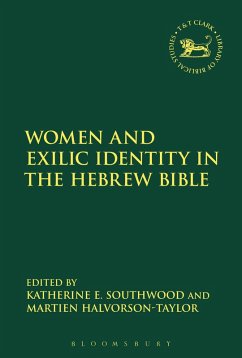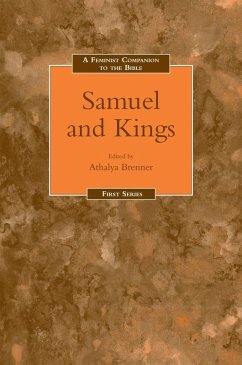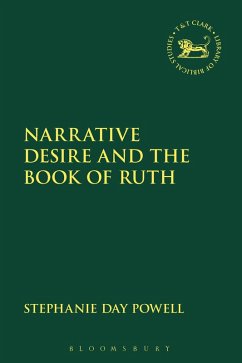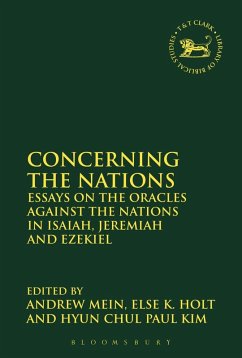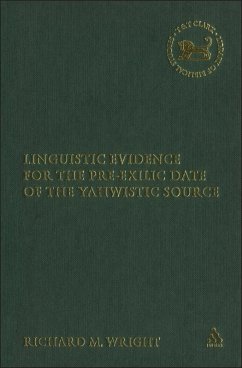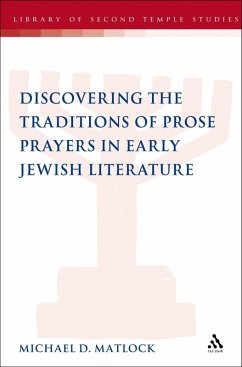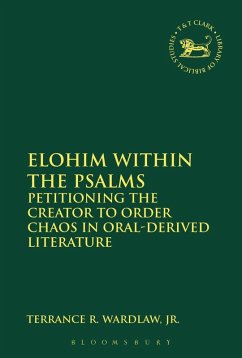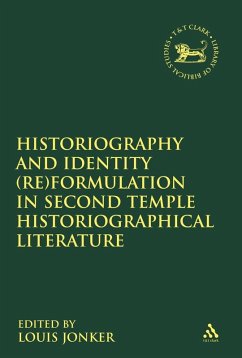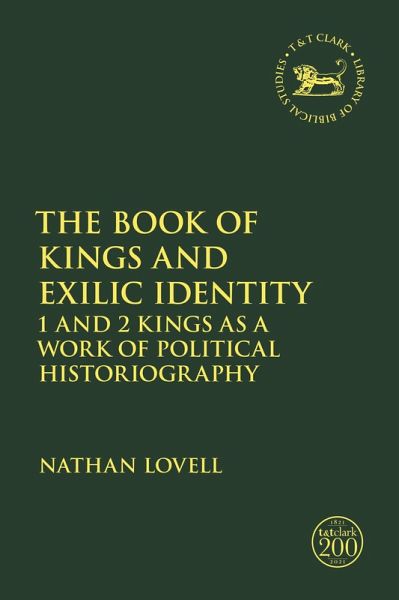
The Book of Kings and Exilic Identity (eBook, PDF)
1 and 2 Kings as a Work of Political Historiography
Versandkostenfrei!
Sofort per Download lieferbar
25,95 €
inkl. MwSt.
Weitere Ausgaben:

PAYBACK Punkte
13 °P sammeln!
Nathan Lovell proposes that 1 and 2 Kings might be read as a work of written history, produced with the explicit purpose of shaping the communal identity of its first readers in the Babylonian exile. By drawing on sociological approaches to the role historiography plays in the construction of political identity, Lovell argues the book of Kings is intended to reconstruct a sense of Israelite identity in the context of these losses, and that the book of Kings moves beyond providing a reason for the exile in Israel's history, and beyond even connecting its exilic audience to that history. The boo...
Nathan Lovell proposes that 1 and 2 Kings might be read as a work of written history, produced with the explicit purpose of shaping the communal identity of its first readers in the Babylonian exile. By drawing on sociological approaches to the role historiography plays in the construction of political identity, Lovell argues the book of Kings is intended to reconstruct a sense of Israelite identity in the context of these losses, and that the book of Kings moves beyond providing a reason for the exile in Israel's history, and beyond even connecting its exilic audience to that history. The book recalls the past in order to demonstrate what it means to be Israel in the (exilic) present, and to encourage hope for the Israelite nation in the future. After developing a reading strategy for 1-2 Kings that treats the book as a coherent narrative, Lovell examines the construction of Israelite identity within Kings under the headings of covenant, nationhood, land, and rule. In each case he suggests that the narrative of the book creates room for a genuine but temporary expression of Israelite identity in exile: genuine to show that it remains possible for Israel to be Yahweh's people during the exile, but temporary to encourage hope for a future restoration.




